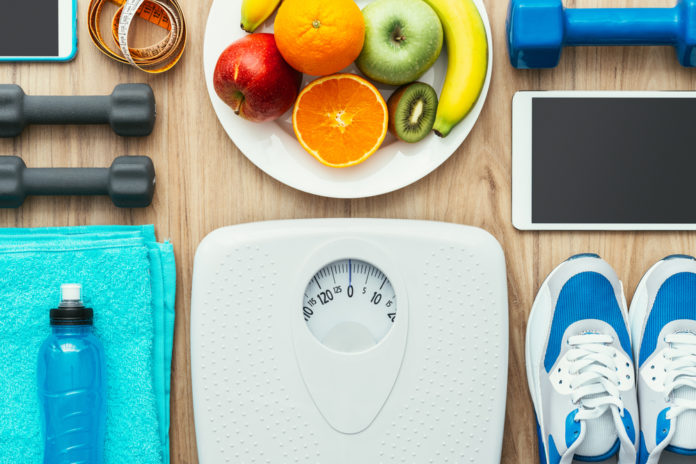14 Tips for Losing Weight
1. Ditch Fad Diets
Fad diets mostly sound too good to be true. And unsurprisingly, they mostly are. Ditching the concept of fad diets is imperative, as bouncing around from one extreme to the next can facilitate harmful expectations and when not reached, can be even more damaging. Magic diet pills do not provoke weight loss, but requires a complete lifestyle change and patience and effort on your end.
2. Embrace Whole Foods
Along with ditching fad diets, reduce the intake of highly processed, packaged foods and embrace whole foods. When focusing on whole grains, fruits and veggies, lean proteins, milk and dairy products, and healthy fat sources, less nutritious foods have less room to comprise the diet.
3. Drink More Water
Thirst often gets mistaken for hunger, subsequently consuming unnecessary calories rather than keeping hydrated. Water has exponential benefits towards health, weight loss and maintenance being one of them. So rather than paying the monetary and physical price of soda, reach for a calorie and cost-free glass of water!
4. Eat Snacks
Although its believed cutting out snacks means saving on calories, cutting the tie to the thought may be highly beneficial. When the stomach starts to growl, nutritious snacks can stave off hunger until the next meal, thus reducing the risk to raven on food come mealtime. It is, though, important to not overdo it on those nighttime munchies. But if desiring a post-dinner snack, try these nine bedtime snacks for weight loss!
5. Enjoy Indulgences
Weight loss does not necessarily follow rigid behaviors and restricted foods. Rather than depriving yourself from life’s pleasures, enjoy indulgences and relish in moderated portions. Avoiding foods may heighten their temptation, only to cause a binge once that item has been presented. But if their splurge becomes too consistent and uncontrolled, keeping them out of the house can reduce binge risk, especially if ravening behind closed doors.
6. Limit Alcohol
Alcohol can impede on weight loss in a multitude of ways. First off, alcohol within itself supplies calories and if complimented with a mixer, hundreds of calories can easily add up. The desires and cravings of food (often innutritious) may also become heightened and caving into them only accelerates calorie intake. Reduced energy levels following a drinking binge may lead to skipped workouts and the urge to reach for that notorious “hangover food.”
7. Meal Prep
Having meals prepared or partially assembled lessens the likelihood of resorting to a quick drive thru run following a long work day. Ultimately, having accessible meals at hand reduces the risk of grabbing for less-than-nutritious convenience foods and unnecessary calorie or ingredient intake. Find your beginner’s guide to meal prepping and recipes here.
8. Use Smaller Plates
Sometimes your eyes are larger than your stomach! Reaching for a large plate may lead to loading it up with large portions. But utilizing a smaller plate can naturally keep serving sizes in check, subsequently reducing the risk of overeating and aiding in weight loss.
9. Turn Off Electronics
Detach from electronics and connect with the meal in front of you. Becoming distracted by phone apps or work emails can cause you to mindlessly eat and before you realize it, the meal on the plate is gone. Focus most attentions on the nourishing food at hand and company next to you rather than social media trends at the dinner table.
10. Sit Down to Eat
Along with turning off electronics, sit down to eat to enhance more mindful eating. (And no, not sitting down on the couch with the television on!) So rather than eating on-the-go, try sitting down with your meal, focusing on hunger and satiety cues, and tuning into senses the food stimulates – the smell, the taste, etc.
11. Sleep It Off
…Literally! Sleeping to weight loss may seem too good to be true, but there is a great reality to catching those nightly Zzz’s. Lack of sleep affects hormones and energy levels, with abnormal hunger hormones elevate the urge to overeat on carb and fat-rich foods. And with reduced energy, workouts are less likely to occur and accumulating weight is more likely to become inevitable. The National Sleep Foundation recommends seven to nine hours of sleep each night. So disconnect from the external world, turn out the lights, and sleep to health.
12. Weigh Consistently
While the number on the scale is not the only indicator of health, monitoring weight can keep you accountable, consistent, and motivated. But a reliable weight may be tricky, as it can continually fluctuate throughout the day related to hydration status and bathroom patterns. To obtain the most accurate weight, stay consistent with a weekly weight day and time (generally in the morning after using the restroom), stepping on the same scale with minimal clothing.
13. Lose Weight Slowly
Weight loss is not only wanted quickly, but immediately. Rapid weight loss tends to rebound back on, leading to the concept of yo-yo dieting. Rather than strict dieting and depriving yourself, embracing a complete lifestyle change with the tips identified above – whole foods, planning ahead, water, sleep, etc. – can naturally moderate weight in a safe, effective manner.
14. Form Support
Though weight loss is based primarily on personal efforts, forming support can ease difficult days and empower struggles whenever you need it the most. Form a strong support system filled with positive and motivated individuals, as vibing with feel-good people can keep you moving in a progressive trend!








